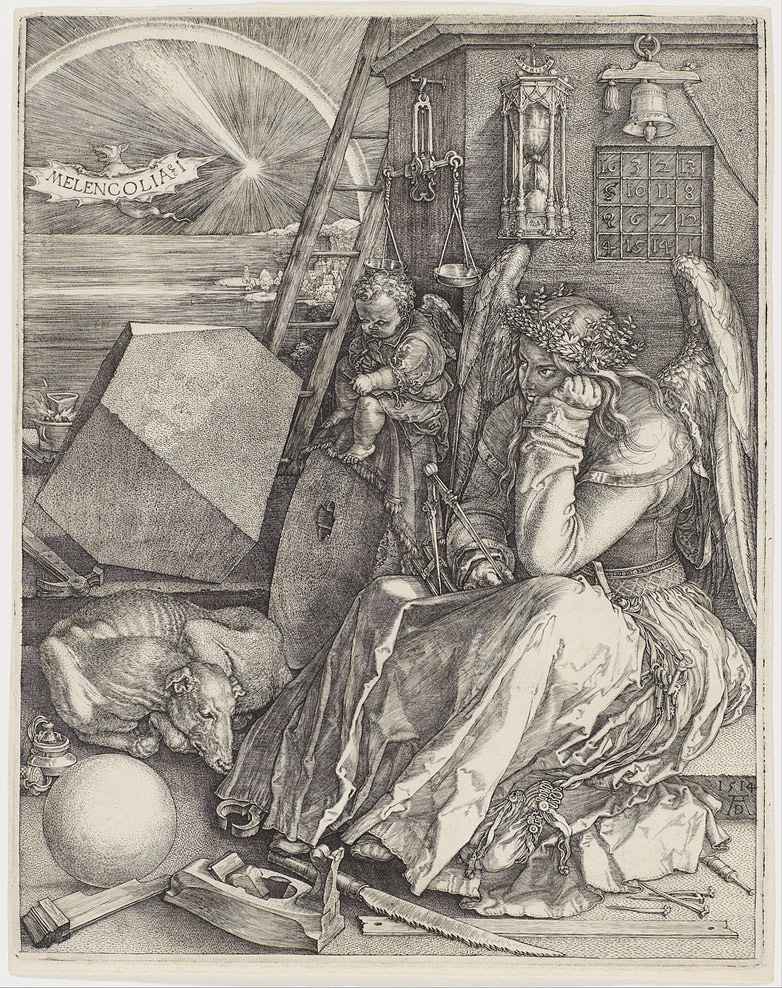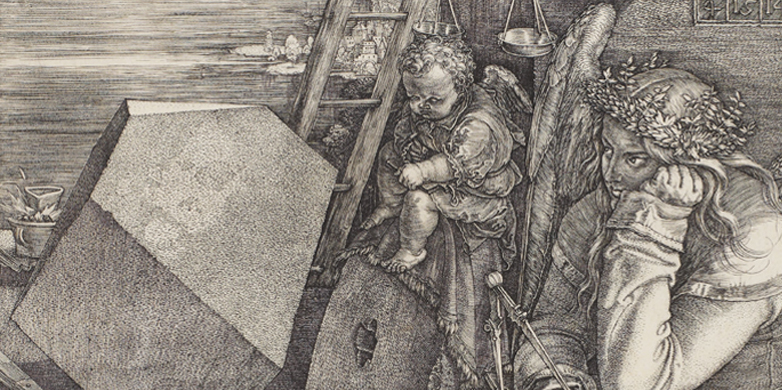A Call to Environmental Action
In the aftermath of the US election, and the consequent precariousness of the Paris climate agreement, it seems particularly apposite to revisit Dürer’s vision – a little more than 500 years since its creation and with a new layer of contemporary interpretation.
Albrecht Dürer’s Melencolia is said to be the most analysed image in the history of art. The print depicts a sitting angel, her head resting heavily on one hand, looking despondently, perhaps dejectedly, towards an uncertain future. In her other hand she holds loosely a set of dividers, objects of measurement and rationality. The keys of knowledge hang off her belt, while scattered on the floor at her feet are the tools and materials of technology.

An emaciated dog lies curled on the floor, eyes unfocused and too weak to lift its head. To the angel’s side a cherub, representing genius, sits atop a millstone, a notebook lying idly in his lap. He too is lost in forlorn thought. Above them both an hourglass marks the inexorable flow of time, while a balance weighs up fate. A magic square carved on the wall conveys the wonder of science, but both cherub and angel are turned away from it. In the far distance the sky is filled with an apocalyptic explosion, the impact of which has yet to be realised in the still-calm waters of the sea and among the coastal villages.
An allegory of concern
Dürer’s melancholic representation suggests despair. It might, I think, be read as an allegory for concern over environmental values and the abrogation of science in the immediate aftermath of the US election. The Paris climate agreement lies prone to the sword of ignorance, while innumerable environmental standards and protected areas enshrined in US law are now threatened with dilution and degradation. Wild biodiversity could well become, much like the dog in the print, emaciated. It is not only in the US that recent political choices will have dire environmental consequences. In the UK, Brexit presages the unravelling of European environmental standards and legislation, with much uncertainty about what will replace them. The current Indian government, meanwhile, has shown little regard for environmental well-being or conservation. And Russia may be looking forward to its Year of Ecology in 2017, but its past actions inspire little confidence that it will make real environmental progress.
It is, nevertheless, imperative that the science community does not become despondent in the face of political setbacks. We have a duty to provide and communicate the scientific knowledge on which good policy is based. As environmental scientists, and as scientists who care about the environment, it is our responsibility – now more than ever before – to work with organisations and governments to promote policy that is based on sound scientific knowledge. The rainbow in Dürer’s print offers hope, and the sea surface remains calm. The hourglass is still half full – there is time.
A call to creativity
Dürer’s Melencolia is properly titled Melencolia I. Some say that the ‘I’ represents ‘Imagination’. I take some solace in this, in that I see it as a call to be more creative in our efforts to communicate our scientific and environmental values to the wider public. In a democratic society, public engagement with, and understanding of, science is a prerequisite for good environmental policy. Politicians are, after all, a reflection of the society that they represent. The election of politicians who so flagrantly disregard science is merely a reflection of our own failure to effectively engage society.
So, let’s get to work with renewed vigour and motivation, but also with imagination – and perhaps a dash of humility.

